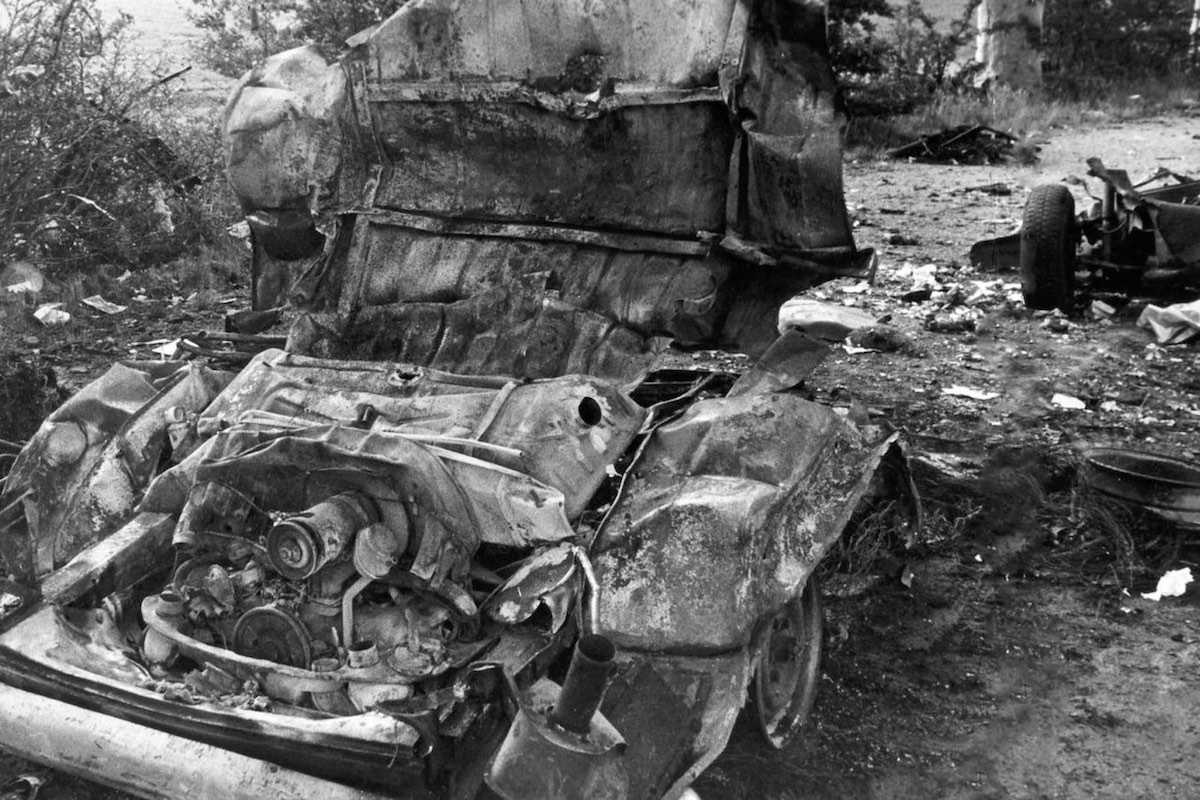
A survivor of the Miami Showband massacre says he’s now certain that British army captain Robert Nairac carried out the atrocity.
Legendary saxophonist Des McAlea says he stood feet away from Nairac moments before the popular cabaret band was gunned down in 1975, killing three of its members.
Nairac was subsequently captured and executive by the IRA two years later while “on special operations” in the north of Ireland. He is back in the news because of an attempt to locate his remains near the border between Louth and Armagh.
Interviewed by the Sunday World newspaper, Mr McAlea recounted how he looked Nairac in the eye seconds before his friends were slaughtered on a remote country road.
There is incontrovertible evidence that Nairac was heavily involved with the unionist paramilitary UVF. At a military museum in London, his former regiment have even put his UVF handkerchief, found among his possessions after his death, on public display.
“I’m now 200 per cent certain I was standing next to Captain Robert Nairac when the bomb exploded and the shooting started,” Mr McAlea said this week.
The van taking the musicians back across the border was stopped at a bogus British army checkpoint at Buskhill Road near Newry, on July 31 1975, following a sell-out show in Banbridge.
Known as ‘Ireland’s answer to The Beatles’, the boys were ordered to stand in line while their details were “checked”.
The gang of British Army soldiers and UVF paramilitaries began searching the van. As they tried to hide a home-made bomb between the amplifiers and guitars, it exploded prematurely, blowing two of them to bits.
But the blast also triggered a slaughter when the gang — who included serial killer Robert Robin ‘The Jackal’ Jackson — suddenly opened fire on the band members.
As he ran for his life, Miami keyboard player and frontman Fran O’Toole was pursued into a field and shot 22 times in the face.
Fellow musicians Tony Geraghty and Brian McCoy were shot dead. Bass player Stephen Travers was also shot repeatedly and left for dead. He was lucky to survive.
Mr McAlea insisted this week that Nairac — still characterised by the British Army as a daredevil war hero — led the gang.
“I believe he was standing next to me when I asked permission to return to the vehicle to retrieve my saxophone and they said ‘yes’.
“That was the moment my life was saved. Because when I returned to the line-up where the other lads were, I didn’t go to the same spot. But I’m telling you today without fear of contradiction — I’m now 200 per cent certain — Captain Robert Nairac was standing right next to me at the murder scene when my close friends Fran O’Toole, Tony Geraghy and Brian McCoy were slaughtered.”
Mr McAlea — who had been blasted into a ditch — scrambled his way back to the main Belfast to Newry road where he managed to flag down a lorry, but the driver refused to help.
Seconds later, another car stopped and a married couple kindly drove Des to Newry RUC Station, where he raised the alarm.
Looking back nearly 50 years, Des is now convinced Nairac had acted as an overseer to the shocking events.
“I now know Nairac planned the Miami massacre down to the last detail,” he said.
Des also believes the Grenadier Guards soldier and a liaison officer to the SAS may even have escaped from the murder scene by scrambling into a British army helicopter nearby.
When he heard on the news they were excavating to find Nairac’s body, “it immediately hit me,” he said.
“O told the RUC from day one that one of the soldiers had a very posh English accent and I’m convinced more than ever it was Robert Nairac.
“But the authorities always denied there was anyone there with an English accent and the reason for that is very simple. The British did not want to admit there was a high-profile army officer present, because that would have been dreadful for the image. In the eyes of the rest of the world, it would have reflected very badly on them.”
![[Irish Republican News]](https://republican-news.org/graphics/title_gifs/rn.gif)
![[Irish Republican News]](https://republican-news.org/graphics/title_gifs/harp.gif)

